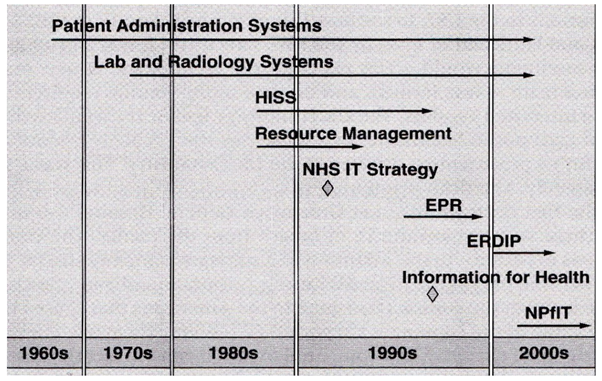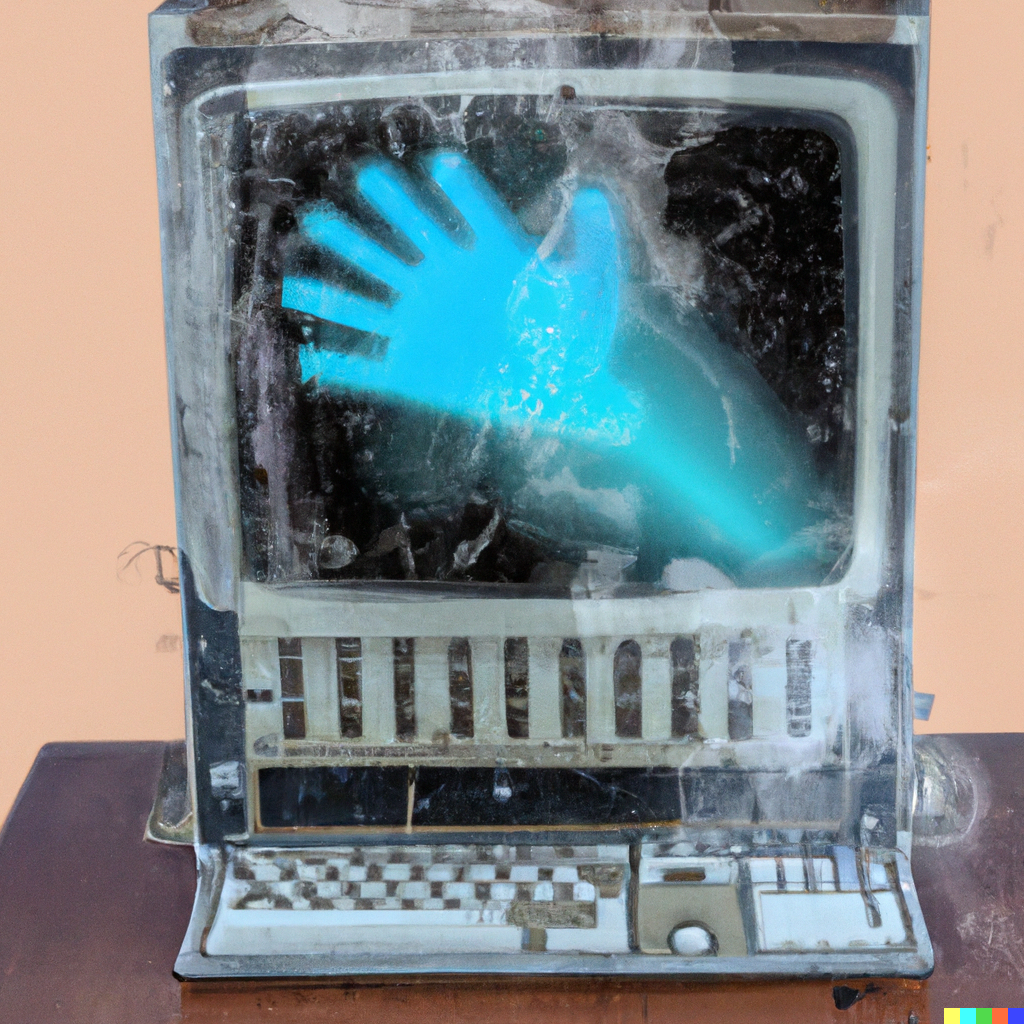Note: All content below are my personal opinions and do not represent my employer or affiliations.
Decades of digital initiatives
You may think digital tech in the NHS is a new challenge. But it’s not, the NHS has a history of digital technology projects and initiatives going back decades to the 60s, the image below shows the past digital initiatives in the NHS.

After years of digital investment and transformation, it’s likely that some IT systems, devices and software have aged out of useful function. Some of the questions I’ve had in mind are: How dated is the technology in the NHS? What is the impact of this legacy technology on staff and patients? Is there enough funding to maintain old systems or upgrade to newer systems?
Unfortunately there’s little information available publically to start to answer these questions.
Why? Perhaps they’re not important. Or perhaps there are little or no problems due to old or legacy technology. Or perhaps its just ignored...
What has been published on legacy tech ?
In summer 2022 the Health and Social Care select committee launched an inquiry into the evidence of digital transformation in the NHS. One question (out of 11) asked for evidence on “What progress has been made in dealing with the proliferation of legacy IT systems across the NHS?”
Scanning through the 64 submissions of evidence only 5 submissions provide evidence on the legacy tech in the NHS. In summary the submitted evidence mentions:
- Outdated MRI machines are preventing image sharing in recently established superfast image sharing networks.
- 41% or physicians don’t have all the hardware they need to deliver good remote care.
- A fifth of doctors in a BMA survey say their IT systems are not fit for purpose.
- An ICS leader comments on poor network and wi-fi preventing full use of EPR systems.
- GPs are struggling with technology that isn’t good enough for video consultations, sharing data or even internet connectivity.
- EHRs are outdated and in need of modernisation.
But what about published research? Well this is just as sparse, there’s less than a dozen publications looking into legacy tech.
A 2020 report on digital transformation in the NHS touches on legacy technology issues that occur in the NHS. One significant issue is that legacy tech systems cannot interact with each other and prevent digital transformation, reportedly some hospitals have more up to 400 IT systems. They are especially vulnerable to attack and so are a cyber security risk, which endangers patients. The report also suggests the NHS lacks the cost and performance information on the true cost of legacy services.
Reform has published a short report on legacy systems. They outline how health providers have IT systems that developed organically over time, creating a jigsaw of systems with unknown interdependencies. The report suggests each organisation needs to map the legacy IT landscape. In essence the extent of the legacy technology is unknown and unknowable until each organisation does a mapping. Of course once the mapping happens the next challenge is updating the tech and subsequently the map. However it should improve transformation planning and spending.
In the report they also suggest a need to run parallel systems to modernise tech. But IT modernisation repeatedly gets deprioritised, it takes time and money with little cost benefit (instead it can improve security, patient safety).
So does the NHS have a legacy tech problem? Well it's unknown...What next? Can you help?
There are many potential problems that can be caused by legacy tech, but while there are indications the NHS might have some legacy tech the extent is unknown. If you’d like to help inform this thinking you can send me a voice message on whatsapp (+44 7732 190 482) answering:
- Have IT systems, hardware and software in the NHS aged out of useful function?
- What is the impact on staff and patients?
- Is this an under appreciated problem for the NHS?
OR:
You can comment and vote on other peoples comments here:

